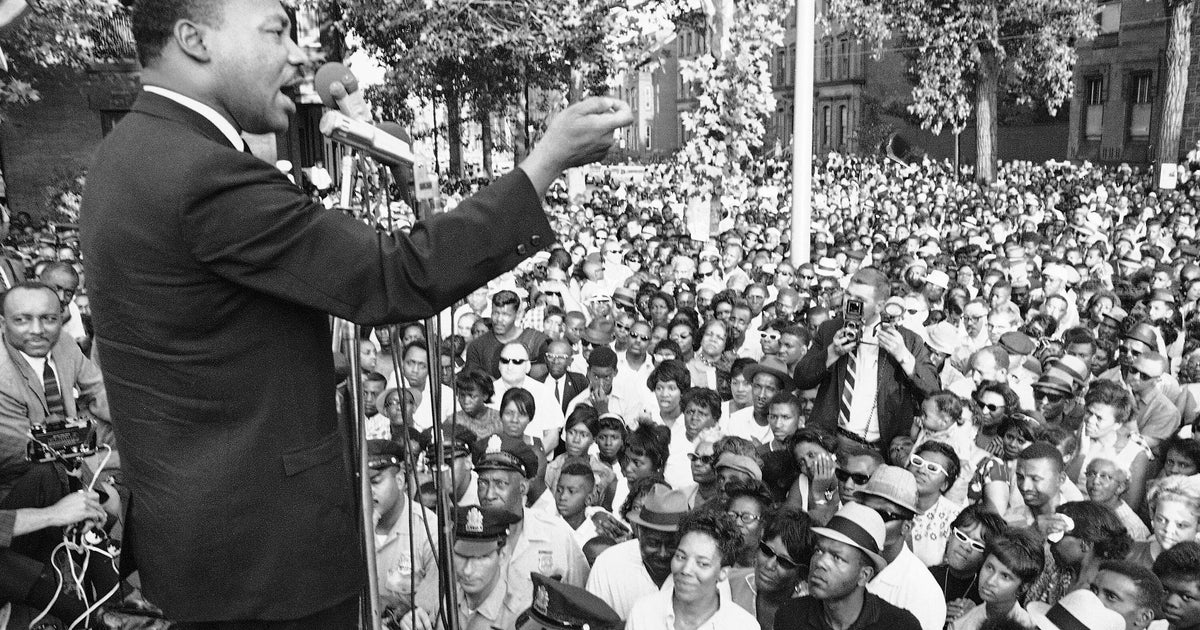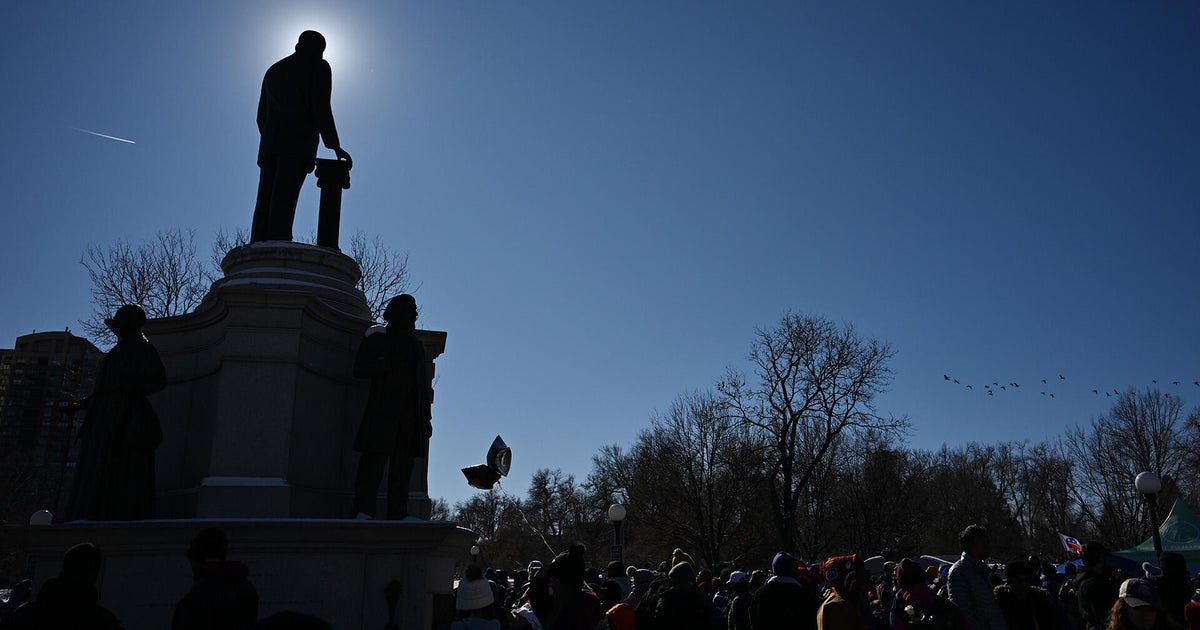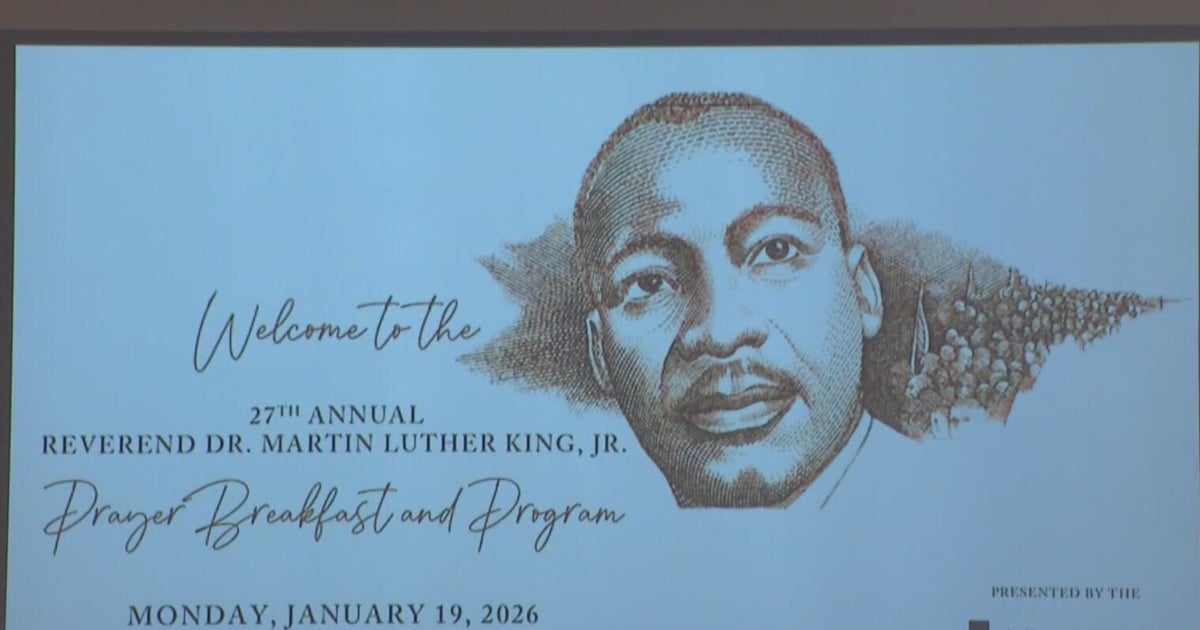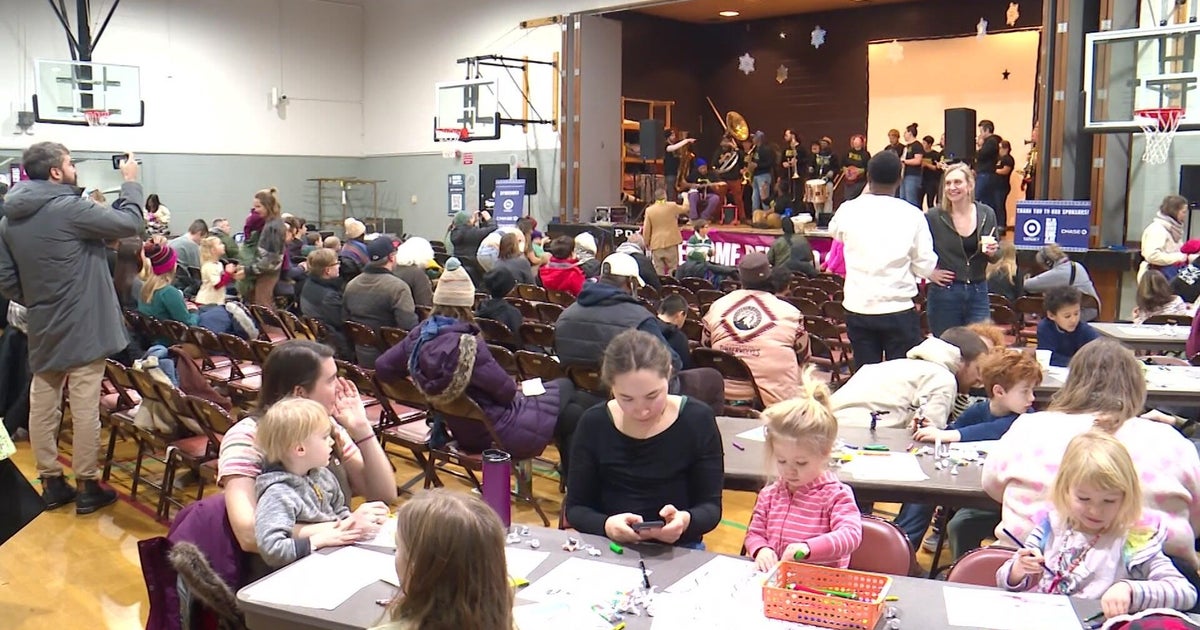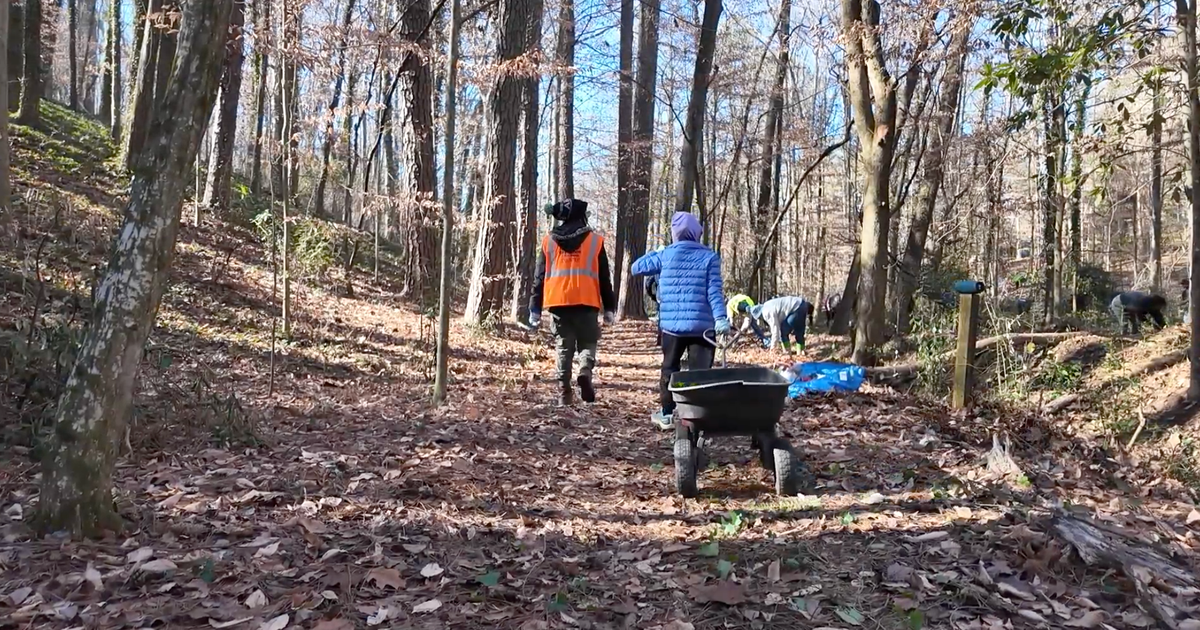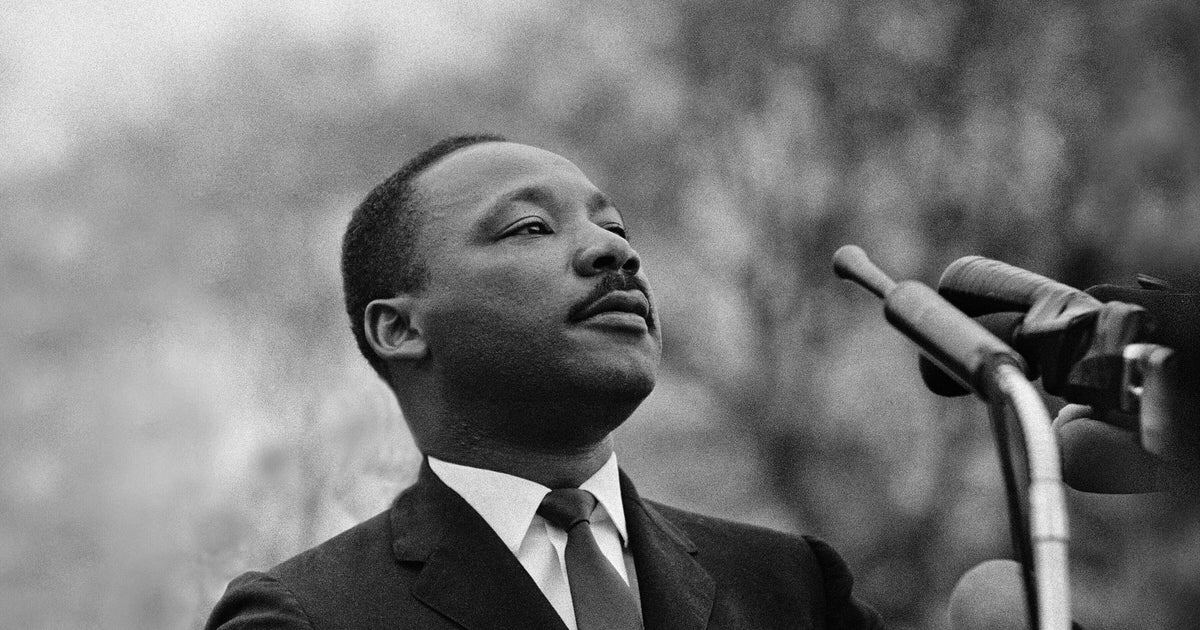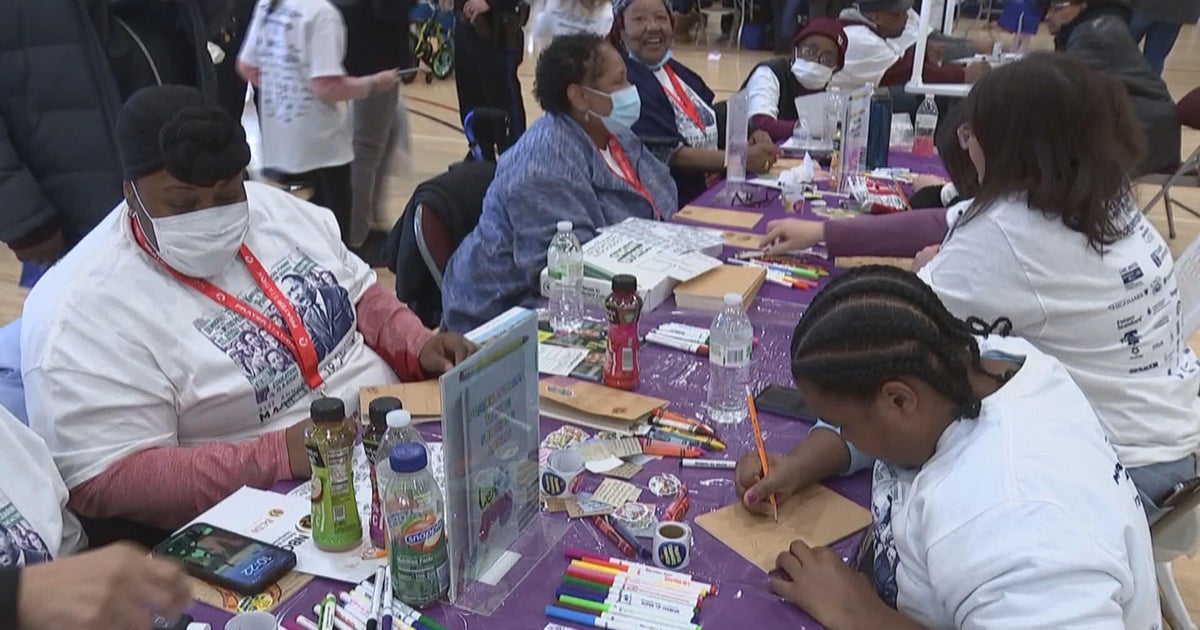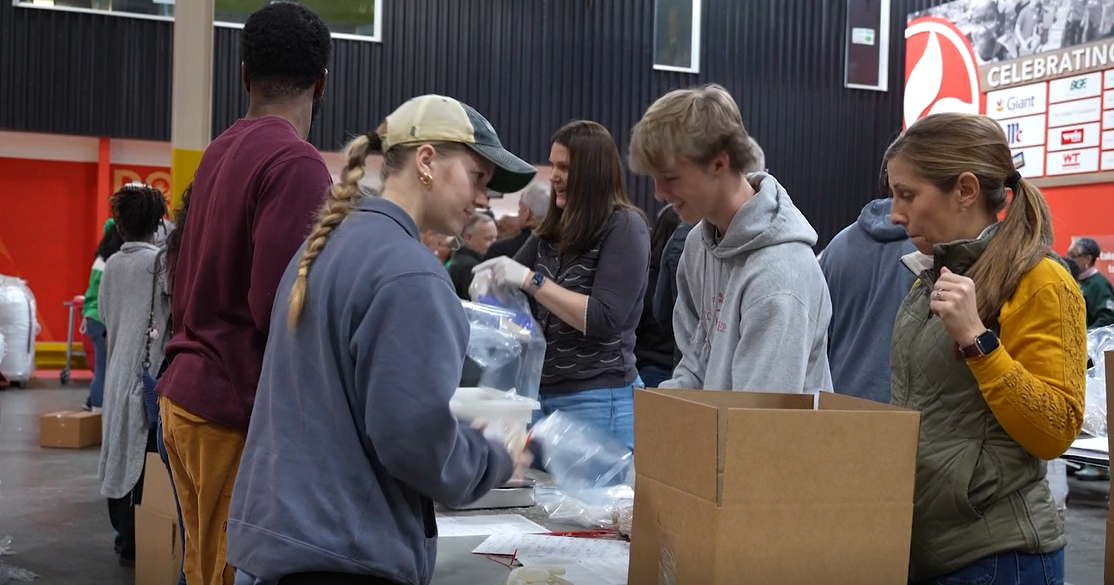Sharpton Urges Supporters To Stand Up To "Stand Your Ground"
ORLANDO (CBSMiami/AP) – Civil rights activist Rev. Al Sharpton rallied against Florida's "Stand Your Ground" law during his address Wednesday at the NAACP conference in Orlando.
Expressing his outrage over the acquittal of Sanford neighborhood watch volunteer George Zimmerman in the shooting death of 17-year old Trayvon Martin, Sharpton told the gathering that so-called "Stand Your Ground" laws are some of the worst civil rights violation in our nation's history.
"We cannot have our sons and daughters lives on the line for anyone who wants to pursue them, follow them, kill them and say it's in self defense," Sharpton told the crowd.
He said the only way Florida will reverse its "Stand Your Ground" statute is if those against it political pressure.
"Just like we raised the temperature to get a trial, we are going to raise the temperature to get civil rights legislation and to turn around 'stand your ground'," said Sharpton.
U.S. Representative Debbie Wasserman Schultz joined the chorus of calls from the podium to repeal the state's "Stand Your Ground" law.
"We shall not be moved when it comes to protecting our children from tragic and senseless violence. As parents, as leaders, we will stand our ground to ensure the safety and future of all of our children," said Wasserman Schultz.
Dr. Martin Luther King Jr. III proposed a possible boycott of Florida orange juice until the stand your ground law was reversed.
Sharpton and other civil rights leaders plan to meet in Miami next week to discuss what can be done to change or overturn the law.
Sharpton has called for vigils around the country this weekend, including one in Miami, to pressure the Department of Justice to press federal civil rights charges against Zimmerman.
"The jury has spoken and now we the people are going to speak," said Sharpton. "We are going to take this fight to the next level. We are going to Washington in August but we're going to stop by Tallahassee on the way."
Sharpton acknowledges there are possible legal hurdles in filing federal civil rights violation charges. Still, he said "there is also a blatant civil rights question of does Trayvon Martin and the Trayvon Martins of this country have the civil right to go home."
Martin was returning to his father's fiancee's house in a gated Sanford townhome community when he got into a deadly confrontation with Zimmerman.
Holder on Tuesday Attorney General Eric Holder briefly touched on a possible federal civil rights case being brought against Zimmerman when he addressed the conference.
Legal experts say such a case would be a difficult challenge.
Prosecutors would have to prove Zimmerman was motivated by racial animosity to kill Martin.
Holder also addressed stand-your-ground laws, which allow a person who believes they are in danger to use deadly force, which he said should be reassessed.
"Separate and apart from the case that has drawn the nation's attention, it's time to question laws that senselessly expand the concept of self-defense and sow dangerous conflict in our neighborhoods," Holder said.
The country must take a hard look at laws that contribute to "more violence than they prevent," Holder said during a speech, "Such laws try to fix something that was never broken."
Martin's shooting shined a light on Florida's stand-your-ground and similar laws around the nation. Most say a person has no duty to retreat if they are attacked in a place they have a right to be and can meet force with force if they fear death or great bodily harm.
Sanford's police chief at the time had cited the law as his reason for not initially arresting Zimmerman in February 2012. Zimmerman told police Martin was beating him up during the confrontation and he feared he would be killed.
Though stand-your-ground was never raised during trial, Judge Debra Nelson included a provision about the law in the instructions that allowed jurors to consider it as a legitimate defense.
"But we must examine laws that take this further by eliminating the common-sense and age-old requirement that people who feel threatened have a duty to retreat, outside their home, if they can do so safely," Holder said.
The defense skipped a chance to ask that Zimmerman have a stand-your-ground hearing before trial. If the judge had decided there was enough evidence that Zimmerman acted in self-defense, she could have tossed out the case before a jury heard it.
In his comments referencing the Zimmerman case, Holder offered a story from his own personal experience — describing how when he was a young black man, his father had told him how to interact with the police, what to say and how to conduct himself if he was ever stopped or confronted in a way he thought was unwarranted.
"I'm sure my father felt certain — at the time — that my parents' generation would be the last that had to worry about such things for their children," said Holder. "Trayvon's death last spring caused me to sit down to have a conversation with my own 15-year-old son, like my dad did with me. This was a father-son tradition I hoped would not need to be handed down."
Saturday's acquittal has inspired "Justice For Trayvon" protests around the nation. Most have been peaceful, although vandalism and violence happened in Los Angeles.
Dozens of protesters carrying signs demanding justice for Martin crammed into the lobby of Florida Gov. Rick Scott's office Tuesday and refused to leave until the governor either met with them or called lawmakers back to Tallahassee to address issues like the state's stand-your-ground law. Many planned to spend the night in the Capitol building.
Despite the challenges of bringing a federal civil rights case, some NAACP members said they wanted swift action.
Tony Hickerson, an NAACP member from Seattle, said he would be disappointed if he doesn't see the Justice Department take action within a month.
"I heard what he (Holder) said, and I don't question his sincerity, but I'd like to see swift action in this case, and I haven't seen that yet," said Hickerson. "His words were eloquent but I need to see some action before I get enthusiastic."
Added Hickerson, "This is a very obvious case. How much thinking do you have to do?"
(TM and © Copyright 2013 CBS Radio Inc. and its relevant subsidiaries. CBS RADIO and EYE Logo TM and Copyright 2013 CBS Broadcasting Inc. Used under license. All Rights Reserved. This material may not be published, broadcast, rewritten, or redistributed. The Associated Press contributed to this report.)
